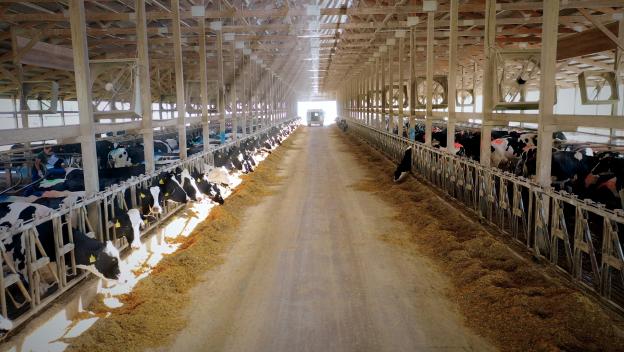Confusion and apprehension abound in today’s world economy. Markets are riding a roller coaster of uncertainty fueled by tariffs and trade negotiations. It’s a whirlwind, especially for businesses caught in the middle. For those in agriculture, the stakes are particularly high, especially with commodities such as pork and soybeans. At Enterprise Bank & Trust, we work with many family-owned farms and understand their future is on the line when it comes to making financial decisions.
The Trade War’s Effect on Farmers
The U.S. and other countries are going back and forth threatening and imposing tariffs on each other’s imported goods. The country making the biggest headlines alongside the U.S. is China, our largest importer of soybeans. China recently threatened to impose additional tariffs on $75 billion of American goods, including an extra 5% on the crop imports.
One in every six rows of soybeans in the United States goes to China. When a country puts a tariff on our product, like soybeans, that makes our product more expensive on the global market, which means our competitor nations’ products are less expensive. Thus, the U.S. loses market share because of the artificially inflated price.
The threat of new tariffs isn’t helping the situation, but it’s important to know that American row crop farmers have been experiencing a market downturn since before the trade war began. Starting in 2015, the U.S. domestic price of row crops has seen almost a 50% drop in price due to strong supply and a demand that was outpaced by producer’s ability to grow crops. This has forced farmers over the past three years to strategically cut costs and modify their operations to secure profitable margins. The farmers’ focus on margin maximization has positioned them to better manage the effects of tariffs.
If we had seen historically high prices from 2015 to 2018 and then the trade war hit, it would have been much more difficult for farmers to adjust their operations. The reality is, over the last three to four years, farmers have been managing with low margins with a focus on decreasing cost and increasing efficiency.
The trade war has led to fluctuations in the market. When the outlook is grim, like when China announced its latest tariff retaliation, stocks fall. But when there’s the possibility of resolution, such as when President Trump mentioned China is open to negotiation at the 2019 G7 Summit, they rise. This sense of uncertainty has encouraged some lenders to decrease their agriculture portfolios. But Hardecke noted that Enterprise clients don’t need to worry. Although the bank does take global macro factors into consideration, credit decisions are made on a more individualized basis. The bank’s philosophy on lending and commitment to financing the agriculture sector hasn’t changed.
Fighting Back
When the market takes a downturn, farmers must take action to protect their profits. Many have been restructuring costs by evaluating expenditures on input and maximizing margin instead of revenue. Farmers are also increasing risk protection by beefing up their crop insurance policies. These practices give farmers more control over their revenue and are good strategies for staying on top when tariff issues come into play.
When you stabilize and mitigate as much risk as possible at the farm level, you can absorb some of the issues that are out of your control, like a trade war.
Farmers can also benefit from having a reliable team of experts on their side. This is not a time when you can be a lone wolf and survive. Good advisors are invaluable resources.
Imperative advisors includes bankers, accountants, a strong risk management team, crop insurance agents, ergonomists and local USDA representatives. The lines of communication between these key partners must be open and ongoing. We recommend surrounding yourself with people who can analyze macro world data issues. They’ll help protect your farm and find opportunities for you to prosper.
I recommend that farmers at least consider taking government-provided subsidies. While many farmers prefer market profit, taking a subsidy is sometimes necessary to ensure a farm’s ability to perform, increase cash flow and protect the farms equity.
We like to see our clients flourish, and if that means taking advantage of a government program, we definitely encourage that. The 2019 subsidy deadline is approaching, so now is the time to apply.
An Industry Built on Resilience
U.S. farmers are feeling the impact of impending tariffs, but the outlook for commodities agriculture is positive. Tariffs have had a huge effect, but the last three years prepared our clients.
Through decades of American farming, agriculture has proven to be one of America’s most enduring industries. History would imply that experience and preparation will continue to get farmers through this downturn and the trade war.
Farmers are tough. They certainly are resilient. Still, we hope this is all resolved as quickly as possible.



